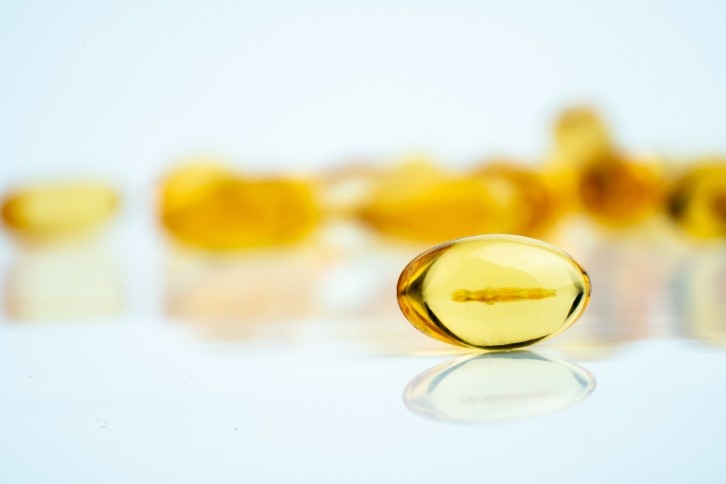Review: Omega-3 fatty acids boost exercise recovery but not performance

“In this context, omega-3 could be a post-exercise recovery agent and sports supplement that could improve performance by preserving and promoting skeletal muscle mass and strength,” wrote Diego Fernández-Lázaro, researcher at the University of Valladolid, Spain, and colleagues.
“No conclusive evidence, however, exists about the potential effects of omega-3 on post-exercise biomarkers and sports performance in physically healthy adults.”
Omega-3 in exercise
Hard exercise leads to oxidative stress in the muscles, where substances called reactive oxygen species (ROS) damage the cell machinery. In particularly demanding routines, this stress can surpass the ability of muscles’ antioxidants to control the ROS, leading to inflammation and further damage to the muscles, the investigators noted.
Omega-3 polyunsaturated fatty acids, found in food sources including walnuts and oily fish, play a role in controlling inflammation. Previous studies suggest they can benefit athletes by improving muscle mass and strength and speeding up recovery.
Conflicting results
To shed more light on the issue, Fernández-Lázaro et al. reviewed 13 studies on omega-3 polyunsaturated fatty acid supplementation, with eligible investigations including randomized controlled trials enrolling healthy adults, providing clear dosing information and measuring inflammation markers, muscle damage, oxidant response and sports performance as outcomes.
The studies included a total of 420 participants, seven studies focused on men, one on women and five on both men and women. Participants in the treatment group received omega-3 polyunsaturated fatty acids in capsules, gels or flavored water with chia seed, with doses ranging from 250 mg/day to 3.6 g/day. The treatment lasted between one day and 26 weeks, and exercise tests included endurance exercises, strength exercises and a mix of the two.
Based on their analysis of the studies, Fernández-Lázaro and colleagues noted that supplementation of 2,400 mg/day of omega-3 fatty acids for 4.5 weeks appears to be an effective dose, particularly with eicosapentaenoic acid (EPA) and docosahexaenoic acid (DHA).
They observed that omega-3 supplementation could reduce the inflammatory response as it decreased levels of a pro-inflammatory cytokine called interleukin-6 (IL-6). However, not all studies reported similar results, and there was disagreement on the effect of omega-3 supplementation on the levels of other markers of inflammation such as tumor necrosis factor-α and C-reactive protein.
Some studies reported that omega-3 supplementation also decreased exercise-induced muscle damage with reductions in muscle biomarkers creatine kinase and lactate dehydrogenase along with an increase in the ratio of reduced glutathione to oxidized glutathione—an indicator of intracellular health. Other markers, meanwhile, showed more conflicting results, including creatine kinase and delayed onset muscle soreness.
"While these findings demonstrate promise for omega-3 supplementation and muscle recovery, the outlook for its impact on improving athletic performance is less encouraging," the researchers wrote. "Limited studies were available, and the consensus among them suggests little to no evidence supporting the notion that omega-3 supplementation provides any discernible benefits in enhancing athletic performance."
High individual variation
Commenting independently on the findings, Jabe Brown, founder of the health clinic Melbourne Functional Medicine, told NutraIngredients that the study "strengthens our understanding of the potential benefits of omega-3s in exercise recovery, particularly in reducing markers of muscle damage and inflammation. The review also highlights the variability in dosing and duration of supplementation across studies, which is a necessary information for practitioners when designing treatment plans."
It can be hard to predict how effective supplements are due to individual variation in body types, activity levels and interactions with other supplements or medications, he said, adding that "there is the need to balance the beneficial effects of inflammation for adaptation with the necessity of promoting recovery, making it a delicate process."
"Many current studies have small cohorts, leading to increased variability and limited statistical power," he added. "Also, while short-term studies provide insights into immediate effects, the impact of prolonged supplementation on overall health, performance and recovery needs to be explored."
Source: Nutrients 2024, 16(13), 2044
"Omega-3 Fatty Acid Supplementation on Post-Exercise Inflammation, Muscle Damage, Oxidative Response, and Sports Performance in Physically Healthy Adults—A Systematic Review of Randomized Controlled Trials"
doi: 10.3390/nu16132044
Authors: Diego Fernández-Lázaro et al











